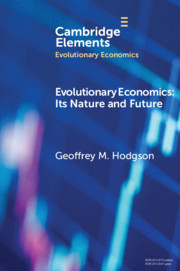Element contents
Evolutionary Economics
Published online by Cambridge University Press: 15 July 2019
Summary
- Type
- Element
- Information
- Online ISBN: 9781108767811Publisher: Cambridge University PressPrint publication: 17 October 2019
References
- 22
- Cited by

